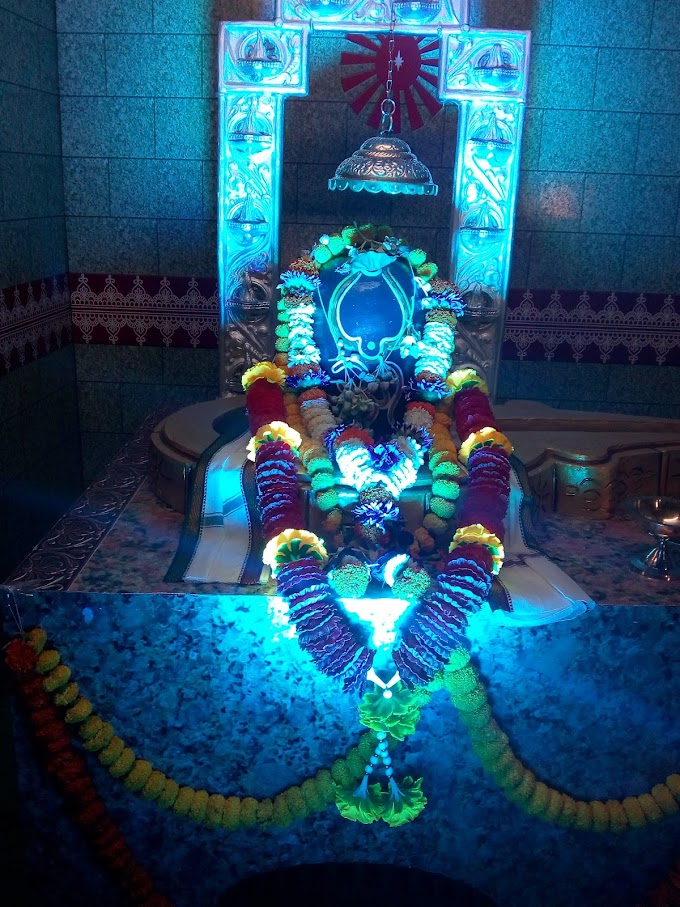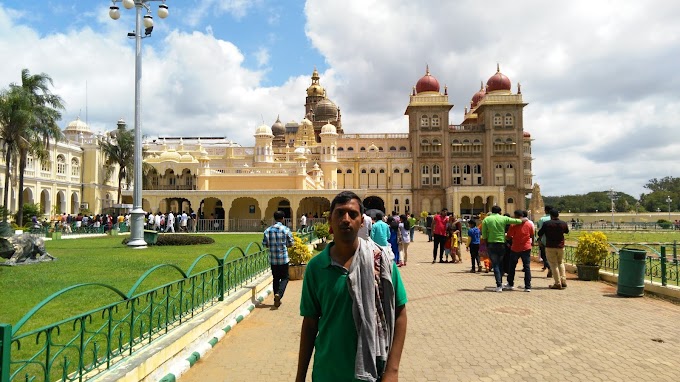CULTURAL NORMS AND RELIGIOUS TABOOS ON MENSTRUATION: INDIAN CULTURE
The topic of Menstruation in Hinduism. In the Hindu faith, women
are prohibited from participating in normal life while menstruating. A woman
must be "purified" before she is allowed to return to her family, and
this has been considered a negative view of menstruation. This follows a
description in the Puranas about Indra's 'Brahmahatya' (act of killing of the
Brahmin demon Vritra) and the mitigation of the sin.
The word “Menstruation” which is known as
a period or monthly, is the regular discharge of blood and mucosal tissue from
the inner lining of the body of the uterus through the vagina. The first period
usually begins between twelve and fifteen years of age and the period usually
ends between forty years to forty five years.
At the
time of menstruation, some women experience their emotional disturbances
starting one or two weeks before their period,. Symptoms of the
menstruation may include mental
tension, irritability, mood swings, and crying spells.
In Hinduism, menstruating women are traditionally advised rules
to follow. Menstruation is seen as a period of purification and women are often separated from place of
worship or any object pertaining to it, for the length of their period. This
forms the basis of most of the cultural practices and restrictions around
menstruation in Hinduism.
No girl should have to feel ashamed of menstruating. That red
stain on her uniform, that spare pad she carries in her bag, they shouldn't
dimish her confidence. Around 60%
of women diagnosed with common reproductive tract infections reported poor
menstrual hygiene, according to a 2012 United Nations Population Fund
study. Only 15% of women use commercial sanitary protection, while 85%
use home-made products, according to a 2015 study on menstrual hygiene
practices. The interviews for this study revealed that these products range from
cloth to make-do pads stuffed with ash, husk or even sand.
In a 2014 study conducted in India, the researchers found that
as many as 42% of women who participated in the study did not know about
sanitary pads or from where in their anatomy menstruation originated. Women
happen to reuse an old rag to store their waste."Most of them were scared
or worried on first menstruation." Moreover, 88% of menstruating women in
rural India use alternatives such as old fabric, rags, sand, ash, wood
shavings, newspapers etc
Discrimination against women on account of menstruation is
widespread in India, where periods have long been a taboo and menstruating
women are considered impure. They are often excluded from social and religious
events, denied entry into temples and shrines and kept out of kitchens.
Menstruation in synchrony with the moon is widely assumed in
myths and traditions as a ritual ideal. The idea that menstruation is ideally
ought to be in harmony with wider cosmic rhythms is one of the most tenacious
ideas central to the myths and rituals of traditional communities across the
world. One of the most methodical analyses of primitive mythology ever
undertaken was that of the French anthropologist Claude Lévi-Strauss, who
concluded that, taken together, the indigenous myths of North and South America
expressed men's worry that, unless women's periods were carefully monitored and
synchronised, the universe might descend into chaos.
In Judaism, a woman during menstruation is called
"niddah" and may be banned from certain actions. For example, the
Jewish Torah prohibits sexual intercourse with a menstruating woman. The ritual
exclusion of "niddah" applies to a woman while menstruating and for
about a week thereafter, until she immerses herself in a ritual bath which is
basically intended only for married women. During this time, a married couple
must avoid sexual intercourse and physical intimacy. Orthodox Judaism forbids
women and men from even touching or passing things to each other during this
period. While Orthodox Jews follow this exclusion, many Jews in other branches
of the religion do not.
She cannot wash her hair for at least the first 5 days of her
period. This is again something weird passed on from elder ladies in the
family. May be years back when bath had to be taken in streams, it used to get
inconvenient to wash body and hair when bleeding. But in today’s age, it is
just one of those unscientific things that need to be followed in the family.
Food is a powerful lens through which to view women and their
place in India. While care is taken of the woman on her period, she is also
excluded, deemed too dangerous to participate in society. This idea of impurity
is propagated by superstition, and enforces a deeply patriarchal power
structure that functions in all realms of the country.
Menstrual hygiene discussions are incomplete without discussing
the disposal of soiled pads. The shame and secrecy associated with menstrual
periods result in improper disposal methods. The polymeric sanitary
napkins, which have replaced cloth napkins to a great extent, are made of
material that is non-biodegradable, leading to the accumulation of used napkins
in landfills.
Feminists such as Chella Quint have spoken against the use of
shaming in advertising for feminine hygiene products She created a zine,
Adventures in Menstruating, to "help alter the visibility of menstruation,
so that it's at least normal to talk about it. Because, right now, it's
not". Other menstrual activists include Rachel Kauder Nalebuff, who
published My Little Red Book; filmmaker and academic Giovanna Chesler, who
created the documentary Period: The End of Menstruation; and artist Ingrid
Berthon-Moine, who exhibited a video and series of photographs at the Venice
Biennale.
During menstrual periods, women are excused from performing
prayers. Sets of rules are advised for women to follow while during
menstruation. They should not fast and left over fasts of Ramadan are to be
completed during other days. During menses pilgrimages are allowed; and
circumambulation of the Kaaba is also permitted. They are permitted to enter
the praying place of the mosque but are excused from prayer and are encouraged
to be present at Muslims gatherings and festivals (Eids). After the period, a
bath (Ghusl), which is also required of both partners after sex, is also
required before prayer may continue.
In 1991, the Kerala High Court restricted entry of women above
the age of 10 and below the age of 50 from Sabarimala Shrine as they were of
the menstruating age. On 28 September 2018, the Supreme Court of India lifted
the ban on the entry of women. It said that discrimination against women on any
grounds, even religious, is unconstitutional.
Celebrated yet outcasted however in some respects Indians view
menstruation, especially the first menstruation or menarche, as a positive
aspect of a girl's life. In South India and also in the Assamese community,
girls who experience their menstrual period for the first time are given
presents and celebrations to mark this special occasion, though women who are
menstruating are not allowed in the household for a period of 3 nights.
Recognizing the taboos that exist in the North, which inevitably
affect any development work in the South is the first step. The statistics
speak for themselves: 23% of girls in India drop out of school when
they begin menstruating. Changing our attitudes and having
‘menstrual-consciousness’ means recognizing the way in which menstruation may
be a hindrance to the outcomes of projects when it doesn’t have to be covering
sectors from wash, education and women’s economic empowerment. Aside from this,
there are the basic rights arguments and quality of life. Only 12%
of India’s menstruating women use sanitary pads while they are
menstruating.
Presently there are many type of products available in market
which can be use at the time of menstruation like Sanitary napkins, Tampons,
Menstrual cups, Reusable cloth pads, period proof underwear, sea sponges,
blanket or towl.










